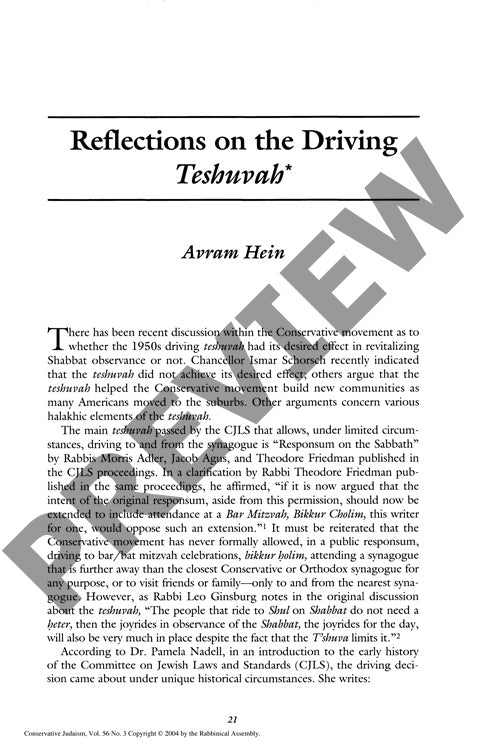Reflections on the Driving Teshuvah
Couldn't load pickup availability
The Conservative movement's 1950 permission to drive to synagogue on Shabbat - a landmark ruling meant to preserve Jewish observance in suburban America - instead contributed to the erosion of Sabbath traditions and community cohesion. Through analysis of rabbinic literature, historical documents, and contemporary scholarship, this research evaluates the effectiveness and legitimacy of the controversial teshuvah authored by Rabbis Morris Adler, Jacob Agus, and Theodore Friedman. Originally conceived as a temporary measure within a broader Sabbath Revitalization Campaign to combat post-WWII assimilation, the driving permission failed to achieve its goal of strengthening Sabbath observance while introducing significant halakhic problems. The ruling violated biblical prohibitions against kindling fire (de'oraita), carrying outside an eruv, and traveling beyond permitted Sabbath boundaries (techum). Moreover, the sociological conditions that justified the original permission—suburban sprawl and limited synagogue accessibility—no longer apply universally. The research demonstrates how this accommodation has inadvertently weakened Conservative Jewish communities by discouraging the formation of walkable neighborhoods centered around synagogues, ultimately driving more observant Jews toward Orthodox communities. Establishing local minyanim within walking distance emerges as a viable alternative to driving-dependent synagogue attendance, supporting the argument that authentic halakhic observance requires reversing this modernizing accommodation.

More Information
-
Physical Description
-
Publication Information
Published 2004
ISBN
-
Publication Credits
Avram Hein

